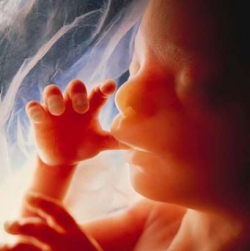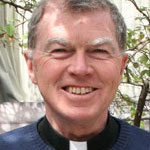Pope Benedict’s decision to resign the papacy shocked the world, and raises some interesting points not only about the papacy, but also about the lives and mission of ordinary Christians.
In the first place, Benedict’s action separates the person of the pope from the office of the pope. It clarifies a popular misconception about papal infallibility.
Seventy years ago, Evelyn Waugh fabricated a scene which is still credible today. He imagined an interview between a credulous and spiritually indifferent man who wished to become Catholic, and a more serious-minded priest:
‘Supposing the Pope looked up and saw a cloud and said “It’s going to rain,” would that be bound to happen?’ the priest asked.
‘Oh, yes, Father.’
‘But supposing it didn’t?’
He thought a moment and said, ‘I suppose it would be sort of raining spiritually, only we were too sinful to see it.’
The Pope is not, of course, an infallible judge of rain clouds. In fact, papal pronouncements are only considered infallible when a pope speaks ‘ex-cathedra’ — from his chair — on questions of Catholic faith and morals. In the last 200 years, popes have exercised this authority only twice.
Waugh’s joke is on the gullible fool who in the name of religion justifies the plainly false.
But the joke’s on us — and by us, I mean all Christians, Catholic and non-Catholics alike — if non-believers really do perceive Christianity to be fantastic nonsense, flying in the face of reason.
Throughout his papacy, Benedict railed against this secular account of irrational belief:
From the beginning, Christianity has understood itself as the religion of the Logos, as the religion according to reason.
We Christians must be very careful to remain faithful to this fundamental line: to live a faith that comes from the Logos — from creative reason, and that because of this, is also open to all that is truly rational.
Benedict’s final action as pope reinforces this teaching. By resigning from the papal chair, he has contextualised papal infallibility, and the papal office. Any reasonable person recognises that it is logically impossible for him to utter an infallible statement on Tuesday, which contradicts the infallible statement the new pope pronounced on Monday. But it’s also legally impossible, because having resigned from office, Benedict will not speak ex-cathedra.
Archbishop Rowan Williams, the former spiritual head of the Anglican Communion, suggests that Benedict’s resignation reminds the world that “the pope is not like a sort of God-king who goes on to the very end.”
The ministry of service that the bishop of Rome exercises is just that, a ministry of service and it’s therefore reasonable to ask if there is a moment when somebody else should take that baton in hand.
Therein lies a lesson for us all on personal vocation or calling.
Not every man who is pope will retire as Benedict has done. But he prayed about it — probably over the course of years — and discerned God’s will. Retirement is part of God’s plan for this man, at this time, in this case.
The point is, personal vocations are always personal. This is true of all of us.
We should not pronounce on other people’s decisions, nor excessively compare our lives to theirs. Each one of us has a unique vocation from God.
In the words of John Henry Newman:
God has created me to do Him some definite service. He has committed some work to me which He has not committed to another.
I have my mission. I may never know it in this life, but I shall be told it in the next. I am a link in a chain, a bond of connection between persons. He has not created me for naught.
If I am in sickness, my sickness may serve Him. In perplexity, my perplexity may serve Him. If I am in sorrow, my sorrow may serve Him.
He does nothing in vain. He knows what He is about. He may take away my friends. He may throw me among strangers. He may make me feel desolate, make my spirits sink, hide my future from me.
Still, He knows what He is about.





Recent Comments